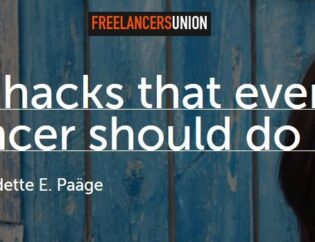
With all the advertisements that come through the mail, email, and telephone, it can be hard to tell opportunity from exploitation, especially for older adults. It's common for senior citizens to scrutinize every piece of mail trying to figure out if it's an important document, and it's often hard to tell the scams from valid correspondence.
Almost every day newspapers report scams that cost seniors their life savings. The National Consumers League's National Fraud Information Center estimates that nearly one-third of telemarketing fraud victims are 60 years old or older.
Old-fashioned scam artists and thieves victimize senior citizens in many different ways. Even family members can be the perpetrators. Keeping in close contact with older friends and family can help protect them from fraud, but ultimately they will have to protect themselves. Knowing what to be wary of can help:
- Employer or Union (past or current).If the deceased was still working, the survivor may be due benefits like life insurance, bonus and vacation pay. If this person was collecting a pension, payments may now go to the surviving spouse.
- Because they are sometimes lonely and welcome the opportunity to talk, seniors may be more hesitant than younger people to hang up on unsolicited phone calls. In addition to being annoying, telephone solicitors can be very persuasive. It's okay to hang up on someone you don't want to talk to, especially if they keep talking after you say you are not interested.
- No one should take money out of the bank at the request of a stranger, even if they promise you income or rewards for your "investment." If the deal seems too good to be true, it is.
- Never give credit card numbers or bank account information to people over the phone unless you are 100% sure you know them and their purposes. It's good practice to get a phone number and say you'll call back. That gives you time to call the bank or credit card company to check on the legitimacy of the call.
- Hiring people who come to your door offering to do repair work opens you up to problems They may not be qualified to do the work or may overcharge. Even worse, they may use the opportunity to gain entry to your home. If you need to hire someone for work in or on your home, get references and ask friends, family members and neighbors for referral of established and reputable contractors. Also, put in writing exactly what you want done and don't pay for the whole job in advance. Break it into several payments based on progress of the project.
- Be wary of telemarketers that: promise you can win, make, or borrow money easily; demand upfront payment to enter a contest; insist that money be sent by wire or courier; refuse to send information by mail; or demand that you act immediately. Sign up for the national Do-Not-Call list at http://www.donotcall.gov or call 1-888-382-1222.
- Avoid filling out contest forms and requests for information because they are common sources of leads for scammers.
Con artists are professional thieves. People of all ages fall victim to their tactics because they are very good at what they do, but seniors are especially vulnerable. Help them understand the problem and the steps they can take to protect themselves. Report suspected scams to the National Fraud Information Center 800-876-7060 or at http://www.fraud.org ) or your local police.
Claudette Paäge is a confidential financial and senior care consultant for busy professionals, individuals and families and retirees. She has made a career out of helping people wrest control over the challenges of everyday living. If you or a loved one need Elder Care in Westchester, NY, Claudette can help. She has a Care Manager on staff. Please call 914-725-0343 with senior care or home health care related questions, or if you need assistance for a loved one. Also, please visit her highly-informative website for more tips and articles... https://paageetcie.com/
Article Source: http://ezinearticles.com/expert/Claudette_E._Paage/158972










